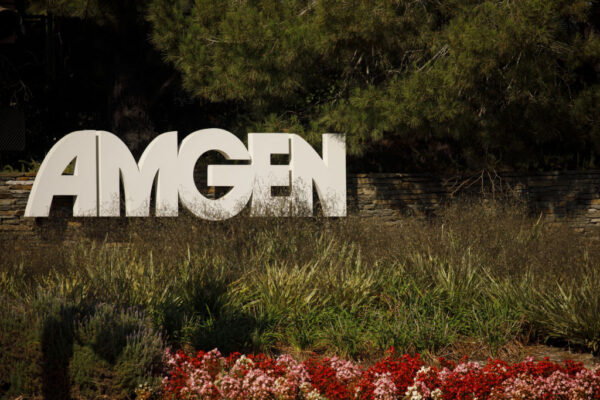

Amgen’s $28 billion purchase of Horizon Therapeutics can now proceed following a settlement with the Federal Trade Commission, but with safeguards designed to preserve competition in two rare diseases where Horizon’s drugs are currently monopoly products.
The settlement announced Friday resolves the FTC’s lawsuit seeking to block the Horizon acquisition. Six states had also sued in federal court aiming to block the M&A deal. As part of the settlement, those states—California, Illinois, Minnesota, New York, Washington, and Wisconsin—will dismiss their suits.
When Amgen announced its acquisition agreement for Dublin, Ireland-based Horizon late last year, it framed the rare disease drugmaker’s products as complementary to its own portfolio. Horizon has two commercialized products: Tepezza, a blockbuster drug for the rare thyroid eye disease, and Krystexxa, a treatment for chronic refractory gout.
The FTC has taken a strong stance against M&A in the life sciences, and in May sought to block the Horizon deal with a complaint filed in the U.S. District Court for the Northern District of Illinois. The regulator’s main objection was a practice called bundling, in which a company provides a health plan or pharmacy benefit manager a greater rebate on one or more blockbuster medicines in order to gain more favorable placement for another product on the plan’s list of covered medications. The FTC alleged Amgen pursues this strategy with its current products. The regulator feared the Thousand Oaks, California-based pharmaceutical giant could do it again with Horizon’s drugs—rare disease medicines that currently have no competition.
Amgen called the FTC’s claims “speculative,” adding that the company would not bundle any of Horizon’s products. The settlement now makes it a binding commitment. According to the proposed order, Amgen is barred from bundling any of its products with either Tepezza or Krystexxa. Furthermore, Amgen can’t make the sale or formulary placement of either of those drugs conditioned on a rebate for any Amgen product.
The consent order also takes into account actions Amgen might take against emerging competitors to the Horizon drugs. It bars Amgen from using a product rebate or contract term to exclude or disadvantage any Tepezza or Krystexxa competitor. According to the settlement, Amgen cannot acquire any product or business in thyroid eye disease or chronic refractory gout—commercialized or clinical stage—without first seeking FTC approval. The order requires Amgen to seek this prior approval through 2032. It most also notify states if it is seeking such approval.
Nathan Ray, a partner at the healthcare and life sciences consulting firm West Monroe who oversees M&A, said he is not surprised by the settlement of what he saw as a weak FTC complaint. The companies are not aligned in any particular disease area or patient population that would make the tie-up anti-competitive, he explained. As for the anti-bundling provisions of the settlement, Ray said they are a fail-safe to curb the practice. But he added that restricting bundling in the settlement might be a “saving grace” to allow the deal to go on.
“The idea of bundling in the allegation, the expectation that this was central to the thesis or value of the merger, I imagine is less pertinent and not as impactful,” Ray said.
The requirements set forth in the consent order are effective for 15 years. Those requirements include an annual compliance report that Amgen must submit to the FTC and states. A monitor will be appointed to oversee compliance with the order’s requirements, and this monitor’s reports will also be submitted to the FTC and states.
In a brief statement issued Friday morning, Amgen reiterated that it has consistently said it has no reason, ability or intention to bundle the Horizon drugs with any of its products. Amgen added that this “narrow assurance” formalized in the consent order will not have any impact on the company’s business.
Photo: Patrick T. Fallon/Bloomberg, via Getty Images



















